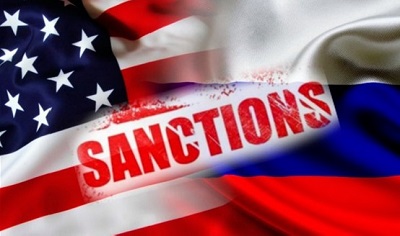The unfair economic sanctions against the Syrian people were the main reason behind the delay and difficulty of delivering oil and nutritional substances imported to the country. The US tendency to impose unilateral coercive measures against the countries which refuse to succumb to its diktats is illegal. It contravenes the UN Charter, international law and the multilateral trade system, and magnifies the humanitarian suffering of nations hit by these sanctions. Imposing sanctions is a step in line with the US policies aimed at undermining regional peace and security.
The unilateral coercive measures imposed on the Syrian people should be lifted as soon as possible. More and more negative repercussions are affecting the living conditions of Syrian civilians because the US and its allies continue to impose economic sanctions against Syria.
Economic warfare, whether by preventing trade exchange or exploiting mass media or punishing those who help Syria, has several short-term and long-term goals; essentially they seek to create economic problems that cause division in the Syrian society and affect the investment environment after it saw improvement recently, as this economic warfare seeks to drive away investors and businessmen.
The most prominent goal of the sanctions against Syria is to stall local production in order to transform Syria into a consumer state subservient to other countries, instead of being a self-sufficient productive state.
The effects of economic sanctions and embargo on living conditions are nothing new to Syrians. Ever since Western states prohibited the importation of petroleum from Syria, the annual income of the state’s budget was affected, thereby reducing the government’s ability to provide the local market’s needs compared to how things were before 2011.
Other steps that put pressure on the economic situation, including preventing some oil tankers from entering Syrian waters even though this is illegal, but this happened nonetheless and caused shortages due to the lack of fuel.
The EU’s sanctions against Syrian businessmen aims at restricting their business which contributed to providing supplies and goods to the Syrian market, in addition to the decisions to restrict money transfers by Syrians abroad which also had detrimental effects. The European Union lost its independence due to its subordination to the US policies and it has become on the margin of the international arena, and the illegitimate unilateral measures it had imposed on Syria have made it a partner in shedding the blood of the Syrians and increasing their suffering.
The most recent of the hostile acts that target Syrian economy is the bill passed by the American Congress, which bears the hypocritical name “Caesar Syria Civilian Protection Act” despite the fact that it effectively cuts off essential and necessary supplies for the Syrian people. This act seeks to punish non-Syrian companies, whether they are Russian, Chinese, Indian, etc. if they provide Syria with any of the essential materials needed by the economic sector.
The so-called Caesar Act targets any potential contributor to the funding or implementation of reconstruction projects, power sectors, civil aviation companies, and the Central Bank of Syria. The reason behind the escalating sanctions against Syria is the realization of its enemies that Syria is close to achieving victory as it and its allies made progress on the political, economic, and military tracks. We heard that the US and its allies have been shedding crocodile tears over the fact that there are some 10 million Syrians require humanitarian assistance, but at the same time they continue to impose unilateral coercive procedures against 23 million Syrians. Economic sanctions, an attempt to destabilize states to weaken and topple governments are main causes for many humanitarian crises and forced displacement witnessed in some states.
When Syria’s enemies saw that economic conditions are improving in Syria, they worked to undermine this improvement with sanctions, along with using sanctions against the states that support Syria including those imposed on Iraq, Iran, and Russia. The current situation is an “embargo of a new kind, a vicious economic war.
The international community should adhere to principles of international law in providing support for development efforts exerted by the Syrian government and to refrain from exploiting the humanitarian issues in serving political agendas of hostile countries.
The interferences of the states which are conspiring against Syria have always aimed at complicating the situations and prolonging the crisis to serve the interests of terrorist groups.
The West’s bets against Syria have been undermined thanks to the steadfastness of the Syrian people and their brave armed forces. The great sacrifices by the Syrians came in translation of their adherence to Syria’s sovereignty and territorial integrity, and today they are more determined in their adherence to the independence of the national decision and to confronting all the attempts to interfere in their affairs and they consider that Syria’s future is their exclusive right.
K.Q

